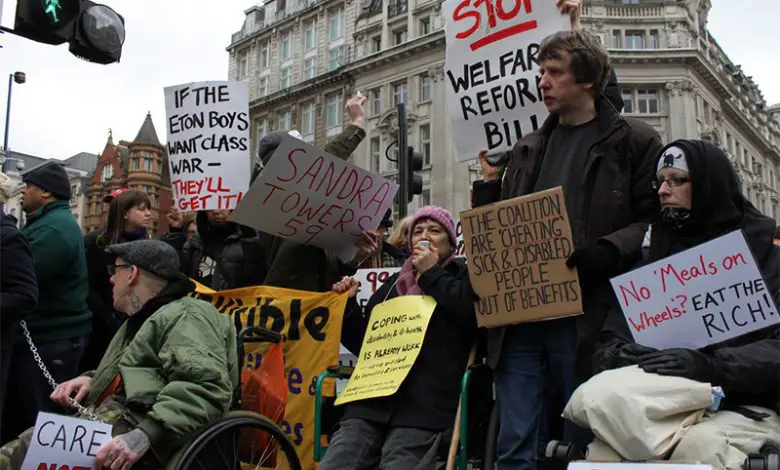
“Welfare is not a Lifestyle Choice”… neither is Disability!
New Disability Horizons contributor, Emily Buchanan, who regularly writes for the Huffington Post, shares her views on upcoming changes to the Disability Living Allowance.
Cuts – it’s a word we’ve come to associate with the current government and one that, as of last Monday, is going to directly affect the Disability Living Allowance and all who receive it.
It was announced this month that the DLA is being replaced by new Personal Independence Payment (PIP), a measure that aims to give more targeted support to those who need it and to frequently access people on lifetime benefits. The latter is a practice that has been neglected by previous governments, meaning 70% of people on DLA have unregulated lifetime support that pays for essential disability bills and living costs. “It’s quite ridiculous,” Iain Duncan Smith, the Secretary of State for Work and Pensions, told the Daily Mail.
Scope, the UK disability charity, warns that 600,000 disabled people will lose their financial support when PIP is rolled out across the country. With 3.3m people claiming DLA – compared to 1.1m when it was introduced in 1992 – the financial implications of such a vast saving are clear. And yet, ahead of the tougher payment plan, the government has witnessed a surge in fresh DLA claims as disabled people try to secure their benefits before the law is implemented in full.
How is PIP different to DLA?
Before last Monday, people who couldn’t walk 50 metres were entitled to disability benefits. However, the new social security regulations have reduced this distance to only 20 metres, meaning regular- and, arguably, stringent – health checks will become compulsory to all those claiming PIP.
Whilst the government dubbed this practise “common sense,” Scope’s chief executive, Richard Hawkes, said: “The assessment looks at an individual’s condition, the health or medical condition of an individual; it doesn’t look at what the fuller picture is and what the additional cost might be of being a disabled person.” As such, PIP will deny many genuinely disabled people their everyday financial independence – simply because they can walk more than 20 metres (which isn’t enough to reach the bathroom, let alone leave the house).
Following the news, three disabled people have launched major legal action to challenge the government’s health checks. Churches and charities have united in their condemnation of the decision and, equally, of the many cuts across the welfare gamut that are effecting the country’s most vulnerable people. In comparison, David Cameron backed George Osborne’s decision to use the Philpott fire as a catalyst for benefit reform and said: “Welfare is not a lifestyle choice.”
Neither is disability.
What does the Philpott case have to do with the Disability Living Allowance?
Using this horrific and isolated crime to justify a political agenda invites a number of morally ambiguous questions, including the demonization of the working class. However, for the purpose of this article, we’ll stay on topic.
One cannot tar all welfare needs with the same brush – particularly disability benefit. Whilst unemployment and childcare benefits can be manipulated to subsidize certain lifestyles (as Philpott infamously demonstrated), no one chooses to have a disability. No one chooses to have a condition that hinders their independence and their quality of life. No one chooses to rely on DLA, or PIP for that matter, and that is crux of the issue.
Moreover, according to the Department for Work and Pensions, only 0.5% of all DLA is fraudulent. This figure stands at 4.7% for Housing Benefit and 6.5% for Job Seekers Allowance. Therefore, it is the most effective welfare system in terms of authentic claimants. So, why is it one of the most harshly affected benefits of the Philpott rhetoric and the consequent reforms?
Of course, in every instance there are those that abuse benefits and claim for it unjustly and, sure enough, the introduction of health checks will eliminate this issue. However, to reduce the independent mobility distance from 50m to 20 is to identify disability using unnaturally strict constraints. PIP does not take into account the needs of the individual. As such, the government is using an unrelated criminal act to condemn the poorest and most vulnerable people in society – at a time when they need the most support.
To find out more about how the welfare reforms will affect you, have a look at this Q&A.
By Emily Buchanan
Don’t forget to get in touch by emailing us at editor@disabilityhorizons.com, messaging us on Facebook, tweeting us @DHorizons or leaving your comments below.